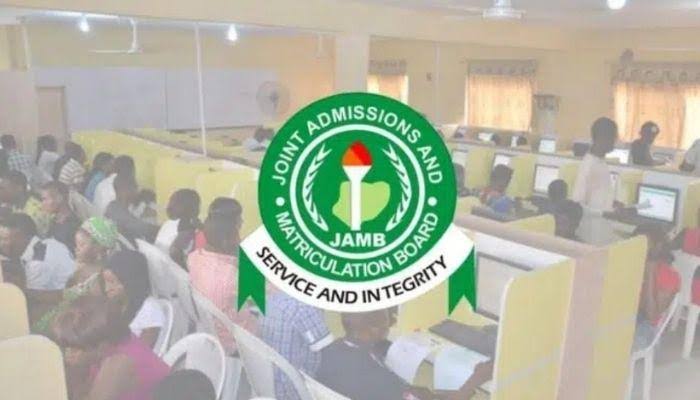Are you preparing for the 2025/2026 JAMB Geography exam? This comprehensive guide on the JAMB Areas of Concentration for Geography is designed to help you focus your studies, master the key topics, and increase your chances of success.
The Joint Admissions and Matriculation Board (JAMB) exam is a critical step for students aspiring to gain admission to tertiary institutions in Nigeria. Geography plays a significant role in this exam, contributing substantially to the overall score. Therefore, thorough preparation for the Geography section is essential for achieving top marks.
In this guide, we provide an in-depth overview of the key topics and concepts you should prioritize while preparing for the Geography section of the JAMB exam. Whether you’re an experienced student or just beginning your preparation, this guide will equip you with the knowledge and tools needed to excel on exam day.
JAMB Areas of Concentration for Geography 2025/2026
1. Practical Geography
- Maps: Understanding different types of maps and their uses.
- Scale and Measurement: Mastering the measurement of distances, areas, reduction and enlargement, directions, bearings, and gradients, particularly in relation to topographical maps.
- Map Reading and Interpretation: Learning to draw cross profiles, recognize intervisibility, and describe physical and human features as depicted on maps.
- Interpretation of Statistical Data: Gaining proficiency in interpreting maps and diagrams.
- Elementary Surveying: Understanding the basics of chain and prismatic surveying, open and close traverse, along with their procedures, advantages, and disadvantages.
- Geographic Information System (GIS): Grasping the components, techniques, data sources, and applications of GIS.
2. Physical Geography
- The Earth as a Planet: Study of the earth’s place in the solar system.
- The Earth’s Crust: Understanding the composition and structure of the earth’s crust.
- Volcanism and Earthquakes: Exploring the causes, effects, and types of volcanic and seismic activities.
- Denudation Processes in the Tropics: Studying erosion, weathering, and mass movement processes.
- Water Bodies: Learning about rivers, lakes, seas, and oceans.
- Weather and Climate: Understanding atmospheric conditions and climatic zones.
- Vegetation: Studying different types of vegetation and their geographical distribution.
- Soil: Understanding soil formation, types, and properties.
- Environmental Resources: Learning about renewable and non-renewable resources.
- Environmental Interaction: Understanding the relationships between humans and the environment.
- Environmental Hazards: Studying natural and human-induced environmental hazards.
- Environmental Conservation: Understanding the importance and methods of conserving environmental resources.
3. Human Geography
- Population: Studying the factors influencing population distribution, density, and growth.
- Settlement: Examining patterns of settlement, particularly in Western Europe, the USA, the Middle East, and West Africa.
- Selected Economic Activities: Understanding the geographical distribution of industries, agriculture, and services.
4. Regional Geography
- Broad Outline of Nigeria: Studying the physical and human geography of Nigeria.
- Economic and Human Geography: Understanding the economic activities and human geography of Nigeria and the ECOWAS region.
You can download the Jamb 2025 Geography Syllabus here.
Frequently Asked Questions FAQs
How can I effectively study these areas of concentration?
Create a study schedule that allocates sufficient time to each topic. Utilize past questions, practice with maps and diagrams, and consider group study for challenging concepts.
Are there specific textbooks recommended for JAMB Geography?
Yes, some recommended textbooks include “Essential Geography” by O. A. Iwena, “New School Atlas” by Philips, and JAMB’s official syllabus.
How important is it to practice past JAMB questions?
Practicing past questions is crucial as it familiarizes you with the exam format and types of questions to expect.
ALL SUBJECTS JAMB 2025 AREAS OF CONCENTRATION:
- Jamb Areas of Concentration 2025/2026 PDF for All Subjects
- JAMB Areas of Concentration for Computer Studies 2025/2026
- Jamb Areas of Concentration 2025 for Use of English
- Jamb Areas of Concentration 2025 for Physics
- Jamb Areas of Concentration 2025 for Chemistry
- Jamb Areas of Concentration 2025 for Biology
- Jamb Areas of Concentration 2025 for Agricultural Science
- Jamb Areas of Concentration 2025 for Arabic
- Jamb Areas of Concentration 2025 for Christian Religious Studies
- Jamb Areas of Concentration 2025 for Commerce
- Jamb Areas of Concentration 2025 for Economics
- Jamb Areas of Concentration 2025 for French
- JAMB Areas of Concentration for Mathematics 2025/2026
- Jamb Areas of Concentration 2025 for Government
- Jamb Areas of Concentration 2025 for Hausa
- Jamb Areas of Concentration 2025 for History
- Jamb Areas of Concentration 2025 for Home Economics
- JAMB Areas of Concentration for Mathematics 2025/2026
- Jamb Areas of Concentration 2025 for Igbo
- Jamb Areas of Concentration 2025 for Islamic Studies
- Jamb Areas of Concentration 2025 for Literature in English
- Jamb Areas of Concentration 2025 for Music
- Jamb Areas of Concentration 2025 for Physical and Health Education
- Jamb Areas of Concentration 2025 for Principles of Accounts
- Jamb Areas of Concentration 2025 for Yoruba.
Conclusion
The JAMB Areas of Concentration for Geography guide is an indispensable resource for students preparing for the JAMB Geography exam in the 2025/2026 session. With this guide, you can focus on the key topics, master essential formulas, and apply expert tips to boost your performance. Don’t leave your success to chance—start studying now to excel in the JAMB Geography exam!
